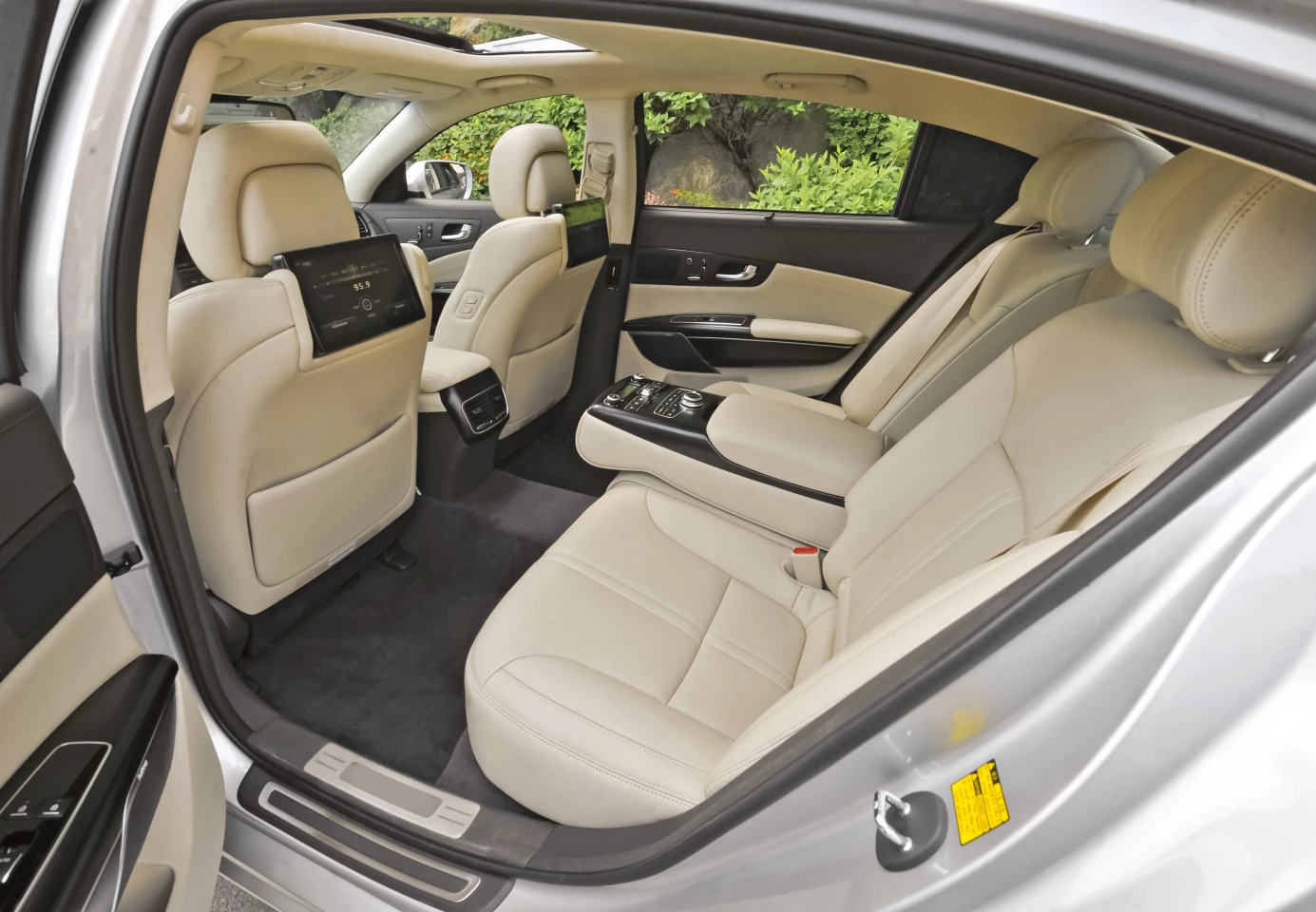Kia has announced that its Quoris luxury sedan is going on sale outside of South Korea later this year. The rear-wheel drive Quoris, known as the Kia K9 in Korea, is the company’s latest move to tempt upmarket consumers into the showrooms with a combination of high-tech gadgetry, opulent trimmings and a dash of GT styling.
Kia calls the Quoris its “flagship” car and the emphasis is squarely on luxury. The styling takes its notes from Kia’s earlier GT Concept with sharp lines and LED headlamps, but the general feel is bit tamer and notably less aggressive. This is car for the posh suburbs rather than the Nurburgring.
The export Quoris will share much with the K9. It has a V6 3.8 liter direct-injection engine with an 8-speed automatic gearbox that delivers a respectable 249 bhp and 291 lb-ft at 5100 rpm (395 Nm) of torque. There’s no word on top speed or acceleration and the mileage isn’t great - only 24 mpg (9.8 L/100 km). The Quoris also has controls to set the suspension, steering, engine and transmission for various road conditions or driving styles.

What Kia does want to talk about is the interior, and that’s loaded to the rafters with comfort and technology. Trimmed in NAPPA leather, the front seats are powered, heated and ventilated and the driver’s seat has 16-way adjustment and memory settings for two people. The rear seats have heated cushions and lumbar back supports and there's also a powered sunroof.
On the entertainment front there’s a multimedia rear-seat system with 9.2-inch (23.36 cm) monitors. There’s also a Lexicon audio system consisting of a 12-channel digital amplifier mounted in the trunk, two speakers in each front door, three in each rear door, four in the dashboard center and two surround-sound speakers and inverted sub-woofer positioned in the rear parcel shelf.

Another standout feature is a head-up display that automatically adjusts to light conditions and feeds the driver information on speed, the local speed limit, navigation directions and blind spot detection.
The Quoris comes with keyless entry and an AFLS (Adaptive Front Lighting System) that enables the full LED headlamps to adjust their angle and width automatically to provide the right light for any speed. Four cameras mounted around the vehicle provide a 360-degree image of the car's location on the sat-nav screen to aid driver awareness of the surroundings.

A Smart Cruise Control uses radar to keep a safe distance from the car ahead by applying the brakes automatically if it gets too close and with its PGS (Parking Guide System), the Quoris can assist the driver in parking by either showing on the sat-nav screen the car’s trajectory or taking over the steering when parallel parking while the driver operates the accelerator and brakes.
Official pricing for the Quoris is yet to be announced.
Source: Kia







